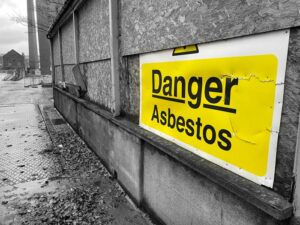An update to The Lancet Commission on Pollution and Health has revealed that there were nine million deaths attributable to pollution in 2019 – equivalent to one in six deaths worldwide.
The number has remained largely unchanged since 2015, with increases in deaths from industrial pollution, such as ambient air and toxic chemical pollution, overshadowing progress made in reducing pollution deaths associated with extreme poverty, like household air and water pollution.
Air pollution accounts for nearly 75% of the deaths, and more than 1.8 million deaths are caused by toxic chemical pollution – an increase of 66% since 2000.
‘The health impacts of pollution remain enormous, and low- and middle-income countries bear the brunt of this burden. Despite its enormous health, social and economic impacts, pollution prevention is largely overlooked in the international development agenda,’ said Richard Fuller, lead author. ‘Attention and funding has only minimally increased since 2015, despite well-documented increases in public concern about pollution and its health effects.’
The findings show that pollution is still the world’s largest environmental risk factor for disease and premature death, especially affecting low and middle-income countries.
The authors are calling for immediate action to address this threat to human and planetary health.
‘Pollution is still the largest existential threat to human and planetary health and jeopardizes the sustainability of modern societies. Preventing pollution can also slow climate change – achieving a double benefit for planetary health – and our report calls for a massive, rapid transition away from all fossil fuels to clean, renewable energy,’ added co-author Professor Philip Landrigan, Director, Global Public Health Program and Global Pollution Observatory at Boston College.
Of the nine million pollution-attributable deaths in 2019, air pollution (both household and ambient) remains responsible for the greatest number of deaths at 6.67 million worldwide. Water pollution was responsible for 1.36 million premature deaths. Lead contributed 900,000 premature deaths, followed by toxic occupational hazards at 870,000 deaths.
Ambient air pollution was responsible for 4.5 million deaths in 2019, up from 4.2 million deaths in 2015 and 2.9 million in 2000.
Excess deaths due to pollution have led to economic losses totalling US$ 4.6 trillion in 2019, equating to 6.2% of global economic output. The study also notes pollution’s deep inequity, with 92% of pollution-related deaths, and the greatest burden of pollution’s economic losses, occurring in low-income and middle-income countries.
The authors of the new study conclude with eight recommendations that build on those given in the Lancet Commission on pollution and health. These include calls for an independent, Intergovernmental Panel on Climate Change (IPPC)-style science/policy panel on pollution, alongside increased funding for pollution control from governments, independent, and philanthropic donors, and improved pollution monitoring and data collection. International organisations also need to approve and establish a better connection between science and policy for pollution, like those for climate and biodiversity, initially for chemicals, waste, and air pollution.
‘Pollution, climate change and biodiversity loss are closely linked. Successful control of these conjoined threats requires a globally supported, formal science-policy interface to inform intervention, influence research and guide funding. Pollution has typically been viewed as a local issue to be addressed through subnational and national regulation or occasionally with regional policy in higher income regions. However, it is clear that pollution is a planetary threat, and that its drivers, dispersion, and health impacts transcend local boundaries and demand a global response. Global action on all major modern pollutants is needed,’ said Rachael Kupka, co-author and Executive Director of the Global Alliance on Health and Pollution.
Photo by Lizgrin F
















Leave a Reply